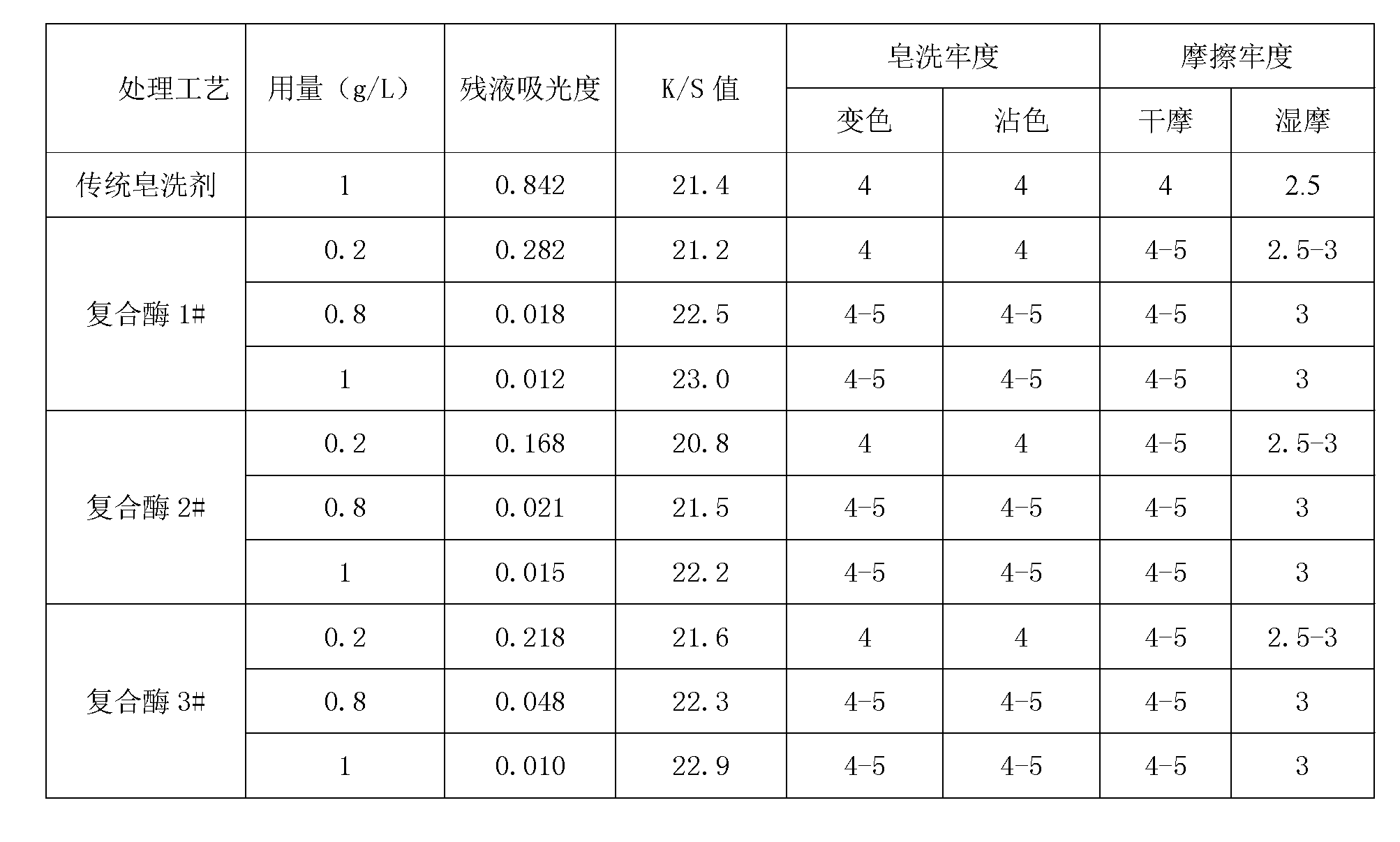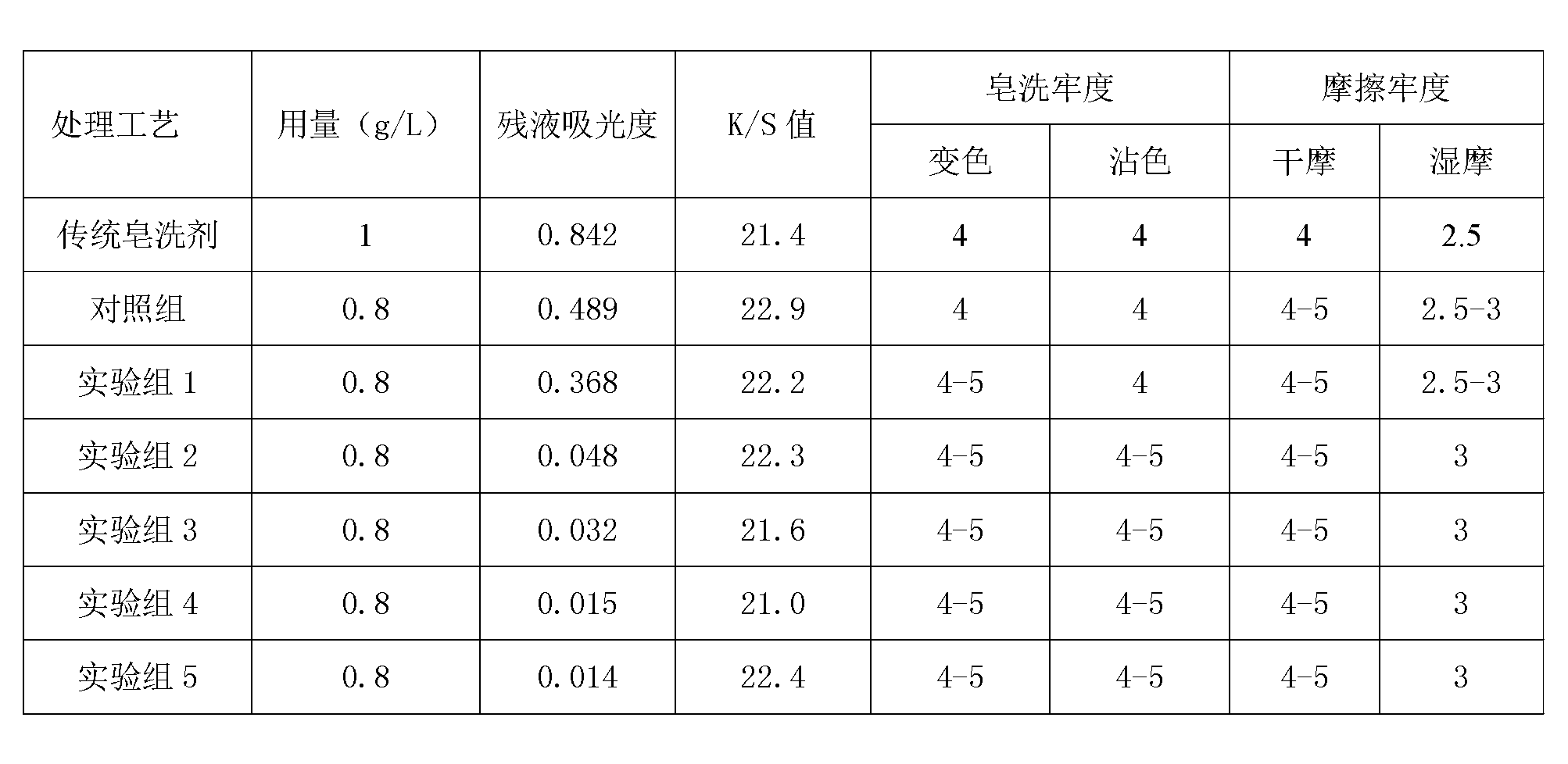Soaping compound enzyme and application method thereof
A composite enzyme, soaping technology, applied in detergent compositions, chemical instruments and methods, non-surface-active detergent compositions, etc., can solve the problem that the wet rubbing fastness of dark dyed fabrics is not obvious, and the dyeing shade changes. It can improve the soaping effect, shorten the process time and save water consumption.
- Summary
- Abstract
- Description
- Claims
- Application Information
AI Technical Summary
Problems solved by technology
Method used
Image
Examples
Embodiment 1
[0017] The components and mass ratios of the composite enzyme for soaping are: 55% laccase, 30% sodium persulfate, 10% polyvinylpyrrolidone, and 5% sodium citrate. In an aseptic environment, use a mechanical mixer to mix the above-mentioned components in proportion to make compound enzyme 1#, totaling 1 kg. The appearance of the composite enzyme is off-white particles.
Embodiment 2
[0019] The components and mass ratios of the composite enzyme for soaping are: 80% laccase, 15% potassium persulfate, 4% polyvinylpyrrolidone, and 1% sodium citrate. In a sterile environment, use a mechanical mixer to mix the above-mentioned components in proportion to make compound enzyme 2#, totaling 1 kg. The appearance of the composite enzyme is off-white particles.
Embodiment 3
[0021] The components and mass ratios of the composite enzyme for soaping are: 70% laccase, 20% ammonium persulfate, 7% polyvinylpyrrolidone, and 3% sodium citrate. In an aseptic environment, use a mechanical mixer to mix the above-mentioned components in proportions to make compound enzyme 3#, totaling 1 kg. The appearance of the composite enzyme is off-white particles.
PUM
 Login to View More
Login to View More Abstract
Description
Claims
Application Information
 Login to View More
Login to View More - Generate Ideas
- Intellectual Property
- Life Sciences
- Materials
- Tech Scout
- Unparalleled Data Quality
- Higher Quality Content
- 60% Fewer Hallucinations
Browse by: Latest US Patents, China's latest patents, Technical Efficacy Thesaurus, Application Domain, Technology Topic, Popular Technical Reports.
© 2025 PatSnap. All rights reserved.Legal|Privacy policy|Modern Slavery Act Transparency Statement|Sitemap|About US| Contact US: help@patsnap.com


